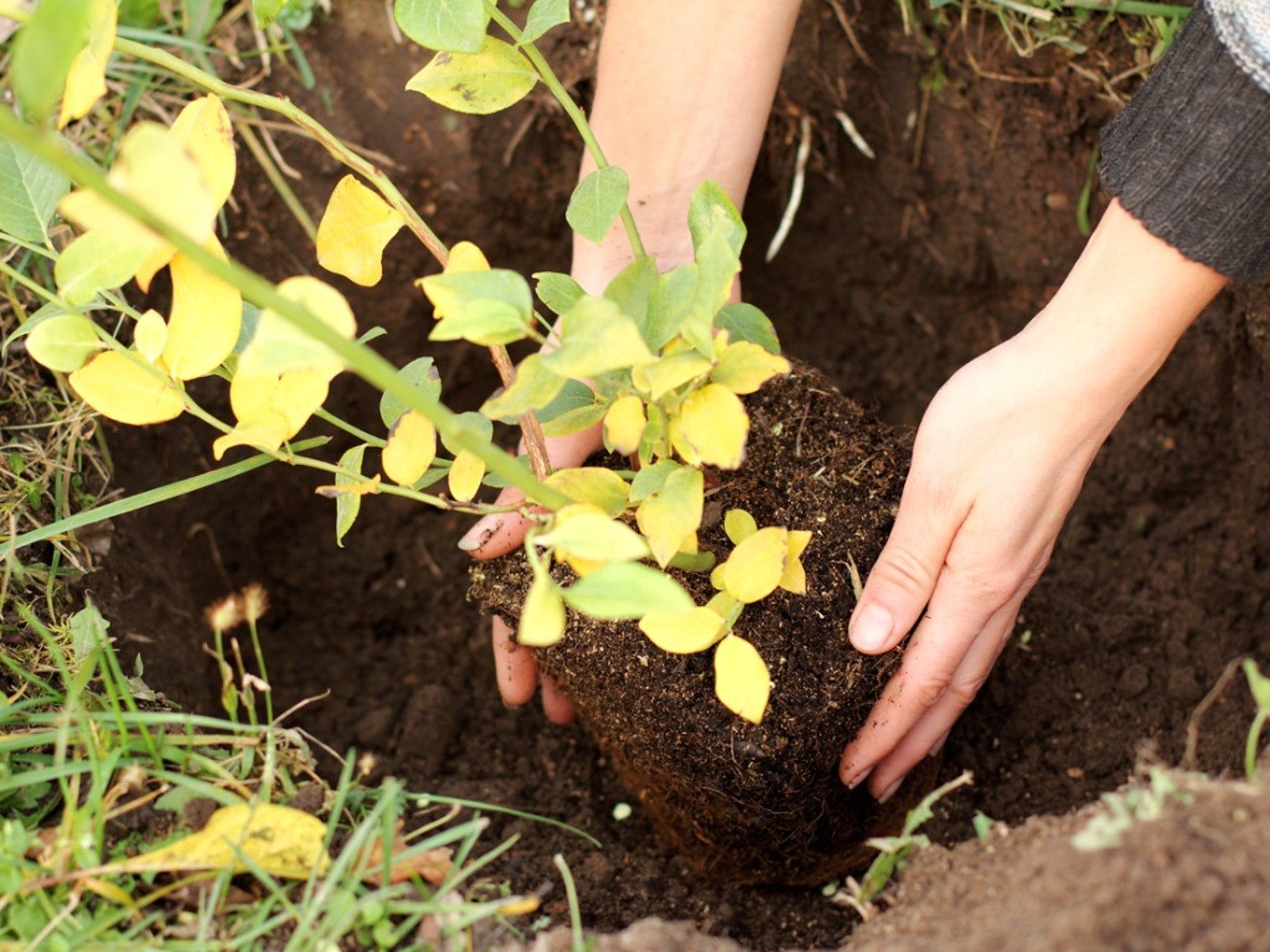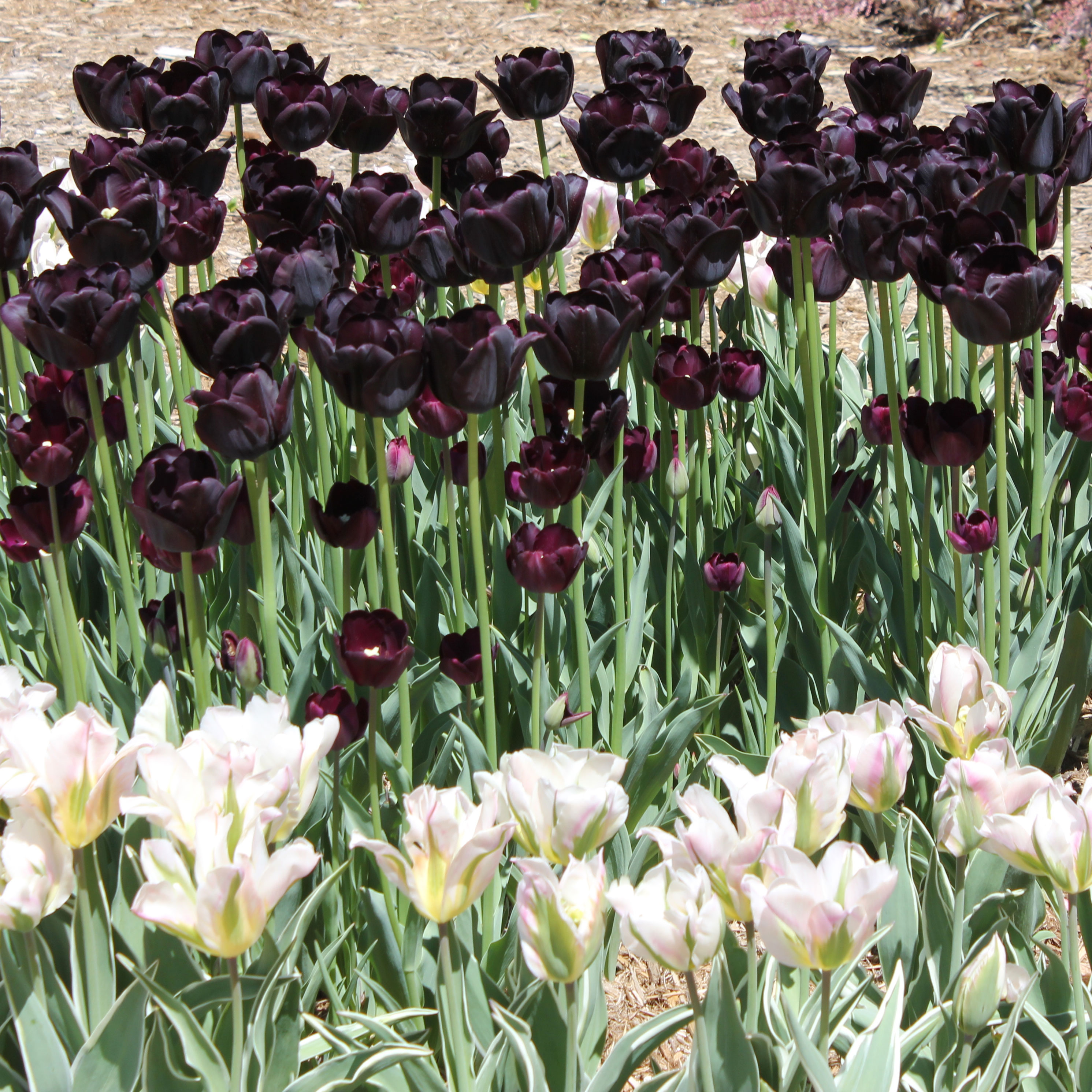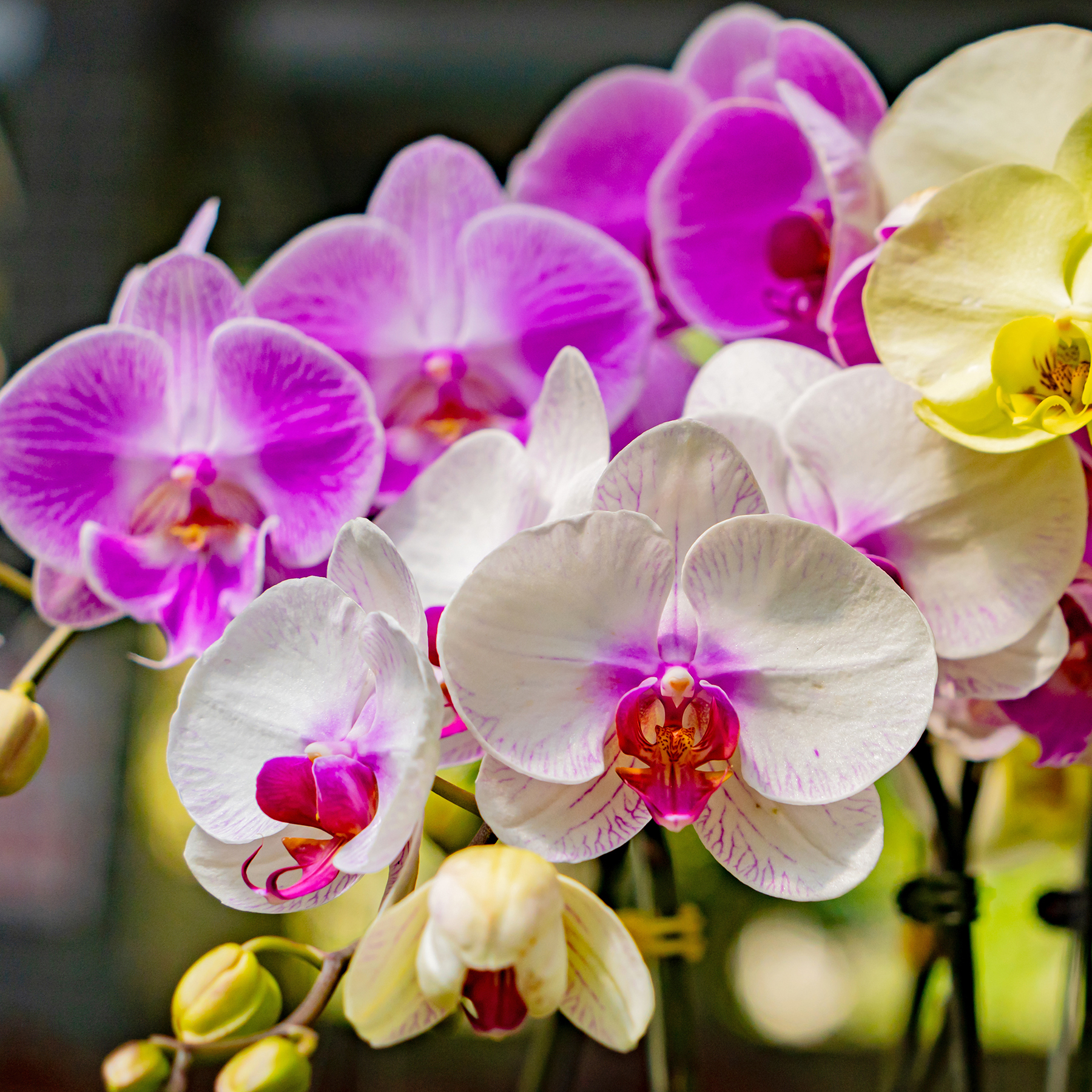Fall Blueberry Bush Planting Guide

If you love blueberries, you might like to grow your own. The question then becomes -- when is the best time to plant blueberry bushes? Can you plant blueberries in the fall, or is another time of year better? Read on to learn when to plant blueberries.
What to Know Before Planting Blueberries
Blueberries need acidic soil to produce fruit so before even thinking about planting a blueberry, have a soil test done. Most fruit like a neutral soil pH of 6.5 to 7.5 but blueberries are unique in that they thrive between 4.3 to 5.5 pH. Growing them in a neutral soil will result in slow growth, stunted plants with yellowing leaves, and little to no fruit.
The pH factor in soil is amended by incorporating sulfur to the soil, either with sphagnum peat moss, elemental sulfur or some other sulfur amendment. Which amendment you use to correct the pH depends on when you plan to plant your berry. If using sulfur, it’s best to amend your soil in the fall prior to planting, as it takes months for the sulfur to change the soil’s pH.
Sulfur is found at garden centers and may be labeled soil acidifier, soil sulfur or sulfur. The application amount varies depending upon the results of your soil test.
If you want to plant in the spring and the soil has not had any amendments, it is best to use sphagnum peat moss, especially if the soil test reveals your soil to be 5.0 to 7.0.
Keep in mind that the entire planting area must be amended, and not just the planting holes, since the roots of the plants will spread outward from the hole. Add 4 to 6 inches (10 to 15 cm.) of peat to the top 6 to 8 inches (15 to 20 cm.) of soil, incorporating it either with a rototiller or shovel.
Soils with a pH closest to 7.0 require more peat, up to 5 to 6 inches (12 to 15 cm.), and those at the lower range of 5.5 to 6 less peat, about 4 to 5 inches (10 to 12.7 cm.). Since all soil is different, redo the soil test six months after planting to determine whether the soil is indeed in the correct pH range.
Gardening tips, videos, info and more delivered right to your inbox!
Sign up for the Gardening Know How newsletter today and receive a free copy of our e-book "How to Grow Delicious Tomatoes".
Also blueberries have shallow roots and thus should be planted in loose, well draining soil.
When Can You Plant Blueberries?
If you live in the milder regions of the country, USDA zones 7-9, you can plant blueberries in either the spring or fall. If you live in the cooler regions, zones 3-6, plants should be set in the spring otherwise they will struggle to establish before the ground freezes.
So when do you plant a blueberry bush in fall? Planting blueberry bushes in fall should occur by mid-October to allow them time to acclimate prior to winter. Otherwise the ideal time to plant blueberries is between November and February after severe frosts have passed.
How to Plant Blueberries
Once your soil has been amended as needed, and you have your blueberry bush(es) it’s time to plant.
If you are planning on planting multiple bushes, dig holes two to three times the width of the plant’s container. Break up the root ball of the plant and settle it into the hole gently spreading out the roots. Backfill with soil dug from the hole. Create a ring of soil around each plant to temporarily hold water. Water each plant with 1 to 2 gallons (4-8 l) of water.
Spread a deep layer of organic mulch around the planting area, taking care to avoid getting near the plant’s stems. Water the blueberry bushes every 5 to 7 days with 1 to 2 gallons (4-8 l) of water, or use less if it has rained.
Keep the areas surrounding the blueberries free from weeds and grass. Side dress each plant with 2 tablespoons (30 ml) 10-10-10 granular fertilizer in mid-summer.

Amy Grant has been gardening for 30 years and writing for 15. A professional chef and caterer, Amy's area of expertise is culinary gardening.
-
 Moody Blooms For Spring: 8 Types Of Black Flowers To Add Drama To Spring Displays
Moody Blooms For Spring: 8 Types Of Black Flowers To Add Drama To Spring DisplaysFrom midnight burgundies to inky violets, several types of black flowers can enrich and embolden a spring display. Try these brooding bloomers for a moody garden
By Tonya Barnett
-
 My Homemade Orchid Fertilizer Always Brings More Blooms – Here's The Easy Recipe That Transforms Plants
My Homemade Orchid Fertilizer Always Brings More Blooms – Here's The Easy Recipe That Transforms PlantsScientist-turned-gardener Mary Ellen Ellis shares her tried-and-tested DIY orchid fertilizer recipe, plus more ingredients to try for healthy, happy plants.
By Mary Ellen Ellis